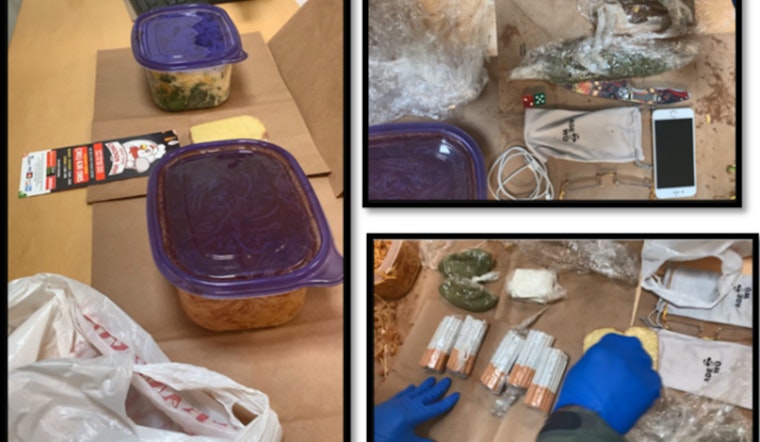Alongside prisoners and outside conspirators, a prisons officer from Gaithersburg, Maryland, has become entangled in the webs of justice. An indictment that was just unsealed has exposed a plot in which illegal goods, including mobile phones, cocaine, and a knife, were meant for prisoners at the D.C. Jail who were awaiting trial on serious offenses like armed assault and murder. In a statement issued by the Department of Justice, U.S. Attorney Matthew M. Graves and other law enforcement officials disclosed this information.
Rashaad Roper, 45, and two women, LaTara Brown, 31, and Kiya Holland, 33, who were arrested on November 19 as part of the plan are named in the indictment. Roper, Brown, Holland, and their co-defendants Stefon Freshley, Marcel Vines, and Darius Robertson are all accused of conspiring to provide or possess contraband in a jail. Examples of the conspiracy were discovered when the Department of Corrections Office of Investigative Services seized contraband twice, in February and July, and retrieved a large number of illegal items from a search of the housing unit where the involved inmates were housed, according to the U.S. Attorney’s Office, District of Columbia.
Holland and Brown allegedly packed illicit goods into Tupperware containers that looked harmless and were deftly hidden inside prepared meals that was wrapped in saran. These canisters were subsequently transported to the D.C. Jail, where they were smuggled in by Roper or another corrections officer (who was identified in the records as “Co-Conspirator 1”). After that, the goods were supposed to be given to Freshley, Vines, and Robertson—all prisoners awaiting trial for severe offenses.
Distributing such illegal goods inside a jail facility undermines the foundations of an already problematic system. The Department of Corrections Office of Investigative Services’ Interior study of the found materials presents a terrifying image: phones, drugs, a switchblade, and other items concealed inside commonplace items like rolling papers and eyeglasses. The scope of this operation was demonstrated by the discovery of a cachet of hundreds of tablets, dozens of illegal cigarettes, and other cell phones during the July raid alone.
The accused faces serious accusations that entail a possible statutory term of 20 years in prison for distributing or having contraband, with the conspiracy charge potentially adding an additional five years. A U.S. District court judge will eventually decide on sentencing, taking into account several statutory considerations as well as federal sentencing guidelines. Although the indictment spells out the accusations, the prosecuting office has pointed out that everyone is presumed innocent until proven guilty beyond a reasonable doubt in a court of law.
Note: Every piece of content is rigorously reviewed by our team of experienced writers and editors to ensure its accuracy. Our writers use credible sources and adhere to strict fact-checking protocols to verify all claims and data before publication. If an error is identified, we promptly correct it and strive for transparency in all updates, feel free to reach out to us via email. We appreciate your trust and support!



Leave a Reply